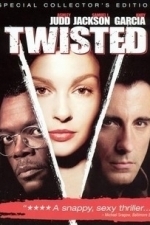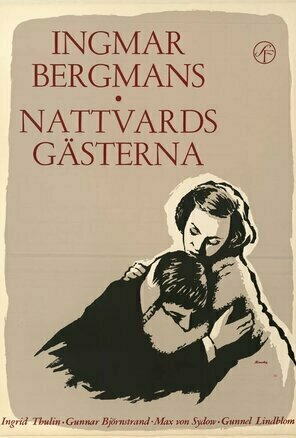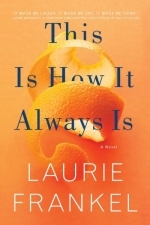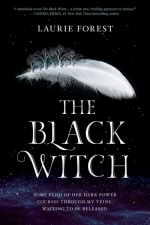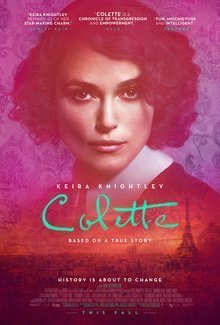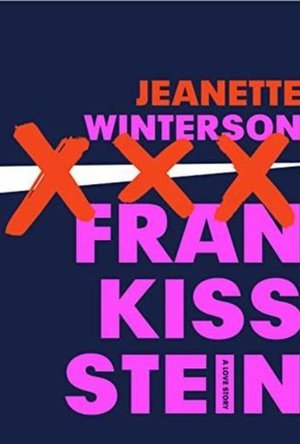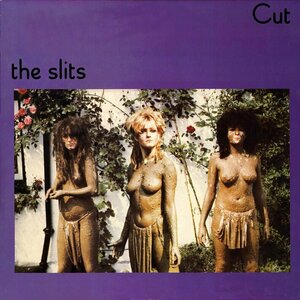Search
Search results
This book has 3 stories in one. I enjoyed them all. The three stories are connected to the previous story in this book. It also mentions Aden and Annie in the last story called "The Dawn of Christmas".
The first story in the book in about Beth Hertzler and somewhat about her aunt Lizzy. The story revels some secrets throughout the book and a romance forms between Beth and Jonah. Will Beth take a chance at second love. Read to find out. You could read the the book called "The Sound of Sleigh Bells" to read about Beth and Jonah and Beth's aunt Lizzy.
The second story is about Mattie and Gideon. Mattie is living in Ohio for some time but something happen to bring her home to Apple Ridge. Her cousin Beth and Lizzy wedding. Though coming home will Mattie learn the truth of Gideon's break in the engagement on Christmas eve. Well they get back together. To find out what happens you can read it or you could read the book called "The Christmas Singing". You can read about Gideon and Mattie and about Lizzy and Beth weddings.
The third story is about Sadie and Levi. Levi is a cousin to Beth and Mattie in someway. Sadie and Levi do not trust the other gender. Though the way they met is somewhat strange that Sadie came and found him laying in the hay-field hurt. Can Sadie and Levi let go of their prejudices and learn to trust each other. You also get to hear about Lizzy and Beth and also about Mattie. There the other couple that is mention that is Aden and Annie. You can read about Aden and Annie story in the book called "The Scent of Cherry Blossoms". If you want to read about Sadie and Levi you can be getting the book called "The Dawn of Christmas".
If you want all three of the stories you can get this book called "Christmas in Apple Ridge".
The first story in the book in about Beth Hertzler and somewhat about her aunt Lizzy. The story revels some secrets throughout the book and a romance forms between Beth and Jonah. Will Beth take a chance at second love. Read to find out. You could read the the book called "The Sound of Sleigh Bells" to read about Beth and Jonah and Beth's aunt Lizzy.
The second story is about Mattie and Gideon. Mattie is living in Ohio for some time but something happen to bring her home to Apple Ridge. Her cousin Beth and Lizzy wedding. Though coming home will Mattie learn the truth of Gideon's break in the engagement on Christmas eve. Well they get back together. To find out what happens you can read it or you could read the book called "The Christmas Singing". You can read about Gideon and Mattie and about Lizzy and Beth weddings.
The third story is about Sadie and Levi. Levi is a cousin to Beth and Mattie in someway. Sadie and Levi do not trust the other gender. Though the way they met is somewhat strange that Sadie came and found him laying in the hay-field hurt. Can Sadie and Levi let go of their prejudices and learn to trust each other. You also get to hear about Lizzy and Beth and also about Mattie. There the other couple that is mention that is Aden and Annie. You can read about Aden and Annie story in the book called "The Scent of Cherry Blossoms". If you want to read about Sadie and Levi you can be getting the book called "The Dawn of Christmas".
If you want all three of the stories you can get this book called "Christmas in Apple Ridge".
Gareth von Kallenbach (971 KP) rated Twisted (2004) in Movies
Aug 14, 2019
For newly promoted Homicide Detective Jessica Shepard (Ashley Judd), life is about to take an unexpected twist that will leave the most private aspects of her life on display and her very sanity questioned.
Sheppard has just been promoted to the San Francisco Homicide unit after bringing in suspected serial killer Edmund Cutler (Leland Orser). Sheppard ignored protocol and almost became a victim herself so there are those in the department who resent her promotion and credit it to her gender and the fact that she is sponsored by a high ranking official named John Mills (Samuel L. Jackson) who has raised her since Shepard’s parents were killed years earlier.
Sheppard is soon called in to investigate a body floating in the bay, and is shocked to discover the victim is a man she picked up in a bar previously. When a second body is discovered also with a connection to Shepard, her partner Mike Delmarco (Andy Garcia), thinks that Jessica may have an obsessive stalker following her.
Jessica is soon a suspect in the killings and the fact that she is blacking out at night is causing Jessica to suspect that she may be responsible for the killings.
What should be a tense thriller never emerges as the film plods along never allowing any tension to build. There are attempts to plant a few red-herrings as the film draws to the conclusion but the identity of the killer is so obvious that all that is missing is a neon sign proclaiming the obvious. To further add to the failure of the film, I was able to see events coming far in advance including the events of the final confrontation.
Judd and Garcia do the best they can with the material but Jackson is woefully underused in a story that seems better suited for a movie of the week. It is a shame that an interesting premise such as this is wasted, as “Twisted” is a whodunit that will leave you saying who cares.
Sheppard has just been promoted to the San Francisco Homicide unit after bringing in suspected serial killer Edmund Cutler (Leland Orser). Sheppard ignored protocol and almost became a victim herself so there are those in the department who resent her promotion and credit it to her gender and the fact that she is sponsored by a high ranking official named John Mills (Samuel L. Jackson) who has raised her since Shepard’s parents were killed years earlier.
Sheppard is soon called in to investigate a body floating in the bay, and is shocked to discover the victim is a man she picked up in a bar previously. When a second body is discovered also with a connection to Shepard, her partner Mike Delmarco (Andy Garcia), thinks that Jessica may have an obsessive stalker following her.
Jessica is soon a suspect in the killings and the fact that she is blacking out at night is causing Jessica to suspect that she may be responsible for the killings.
What should be a tense thriller never emerges as the film plods along never allowing any tension to build. There are attempts to plant a few red-herrings as the film draws to the conclusion but the identity of the killer is so obvious that all that is missing is a neon sign proclaiming the obvious. To further add to the failure of the film, I was able to see events coming far in advance including the events of the final confrontation.
Judd and Garcia do the best they can with the material but Jackson is woefully underused in a story that seems better suited for a movie of the week. It is a shame that an interesting premise such as this is wasted, as “Twisted” is a whodunit that will leave you saying who cares.
Jean-Pierre Gorin recommended Nattvardsgästerna (Winter Light) (1962) in Movies (curated)
Heather Cranmer (2721 KP) created a post
Sep 15, 2021
Kristy H (1252 KP) rated This is How it Always Is in Books
Feb 1, 2018
Rosie and Penn are a bit of an amazing love story. They both knew they'd fall in love before they even met. Now they have five rambunctious kids, a farmhouse in Wisconsin, and a crazy, wonderful life. Things get a little more complicated, however, when their youngest son, Claude, starts wanting to wear a dress to preschool. Claude wants long hair with barrettes. Claude wants to be a princess when he grows up. Rosie and Penn are supportive of Claude: they just want their children to be happy, after all. But they soon realize Claude isn't just going through a phase. Claude has gender dysphoria, and their son wants to become a little girl named Poppy. The family is willing to support Poppy, but Rosie and Penn make the decision to do so in secret. But secrets don't stay kept forever.
<i>This is a fascinating, heartbreaking, and beautiful book.</i> It's filled with endearing characters, and I will certainly be recommending it to many people. I had a few issues with some of the realism aspects (more on that below), but I loved its details about raising children (of all kinds) and its humor. Penn, Rosie, and their kids are real.
Woven and embedded throughout this novel is a fairytale that Penn tells his children--starting with when his first boys were babies--and in some ways, the novel itself has its own fairytale moments. Frankel mentions that she does have a child who used to be a little boy and is now a little girl, but the story is not about her daughter. It is, she writes, "an act of imagination, an exercise in wish fulfillment." Still, you can imagine her as a supportive parent. That's certainly not everyone's experience. Does that mean everyone has to write a novel where the child's parents throw them out and society shames them? No. Would I have liked to have a seen a little more of a realistic take on how Poppy and her parents would deal with her secret and how those around her would take it? Maybe. It's not that the family doesn't have hardship, because they do, and Frankel does a good job showing that it takes a bit of a toll on her clan of brothers, as well. But--and I don't want to go into too much, as I don't want to give spoilers--I felt the resolution to the story was a bit pat. Much like Penn's fairytales, it seems to allow things to just wrap up quickly easily. So that was a little problematic for me. But, I didn't feel as irritated after reading Frankel's afterword, because I realize that this novel--for her--is indeed an "exercise in wish fulfillment." This is what she wants in the world. I won't lie: it's what I wish for as well. And perhaps reading novels like this, featuring a wonderful, precocious little boy who can become a wonderful, beautiful, mostly accepted little girl, is a great first step.
The novel is intricate and very detailed, though quite well-written. It's heartbreaking in Penn and Rosie's realization that Claude wants to be a girl and what that will mean for him and the family. They only want for their children to be happy. Frankel does an excellent job at portraying how adults and children can see the world so differently--in terms of gender and much more. As a parent, I often found myself wondering about what I'd do in their situation: it's a book that gets you thinking, for sure. In the end, I loved the family very much and was quite invested in their happiness. Again, another reason why I would have liked a slightly more developed ending after having gone through so much with them.
Still, this is a lovely, timely book. No matter some of the issues I had, I still enjoyed it and certainly recommend it.
<center><a href="http://justacatandabookatherside.blogspot.com/">Blog</a>; ~ <a href="https://twitter.com/mwcmoto">Twitter</a>; ~ <a href="https://www.facebook.com/justacatandabook/">Facebook</a>; ~ <a href="https://plus.google.com/u/0/+KristyHamiltonbooks">Google+</a>; ~ <a href="https://www.instagram.com/justacatandabook/">Instagram</a>; </center>
<i>This is a fascinating, heartbreaking, and beautiful book.</i> It's filled with endearing characters, and I will certainly be recommending it to many people. I had a few issues with some of the realism aspects (more on that below), but I loved its details about raising children (of all kinds) and its humor. Penn, Rosie, and their kids are real.
Woven and embedded throughout this novel is a fairytale that Penn tells his children--starting with when his first boys were babies--and in some ways, the novel itself has its own fairytale moments. Frankel mentions that she does have a child who used to be a little boy and is now a little girl, but the story is not about her daughter. It is, she writes, "an act of imagination, an exercise in wish fulfillment." Still, you can imagine her as a supportive parent. That's certainly not everyone's experience. Does that mean everyone has to write a novel where the child's parents throw them out and society shames them? No. Would I have liked to have a seen a little more of a realistic take on how Poppy and her parents would deal with her secret and how those around her would take it? Maybe. It's not that the family doesn't have hardship, because they do, and Frankel does a good job showing that it takes a bit of a toll on her clan of brothers, as well. But--and I don't want to go into too much, as I don't want to give spoilers--I felt the resolution to the story was a bit pat. Much like Penn's fairytales, it seems to allow things to just wrap up quickly easily. So that was a little problematic for me. But, I didn't feel as irritated after reading Frankel's afterword, because I realize that this novel--for her--is indeed an "exercise in wish fulfillment." This is what she wants in the world. I won't lie: it's what I wish for as well. And perhaps reading novels like this, featuring a wonderful, precocious little boy who can become a wonderful, beautiful, mostly accepted little girl, is a great first step.
The novel is intricate and very detailed, though quite well-written. It's heartbreaking in Penn and Rosie's realization that Claude wants to be a girl and what that will mean for him and the family. They only want for their children to be happy. Frankel does an excellent job at portraying how adults and children can see the world so differently--in terms of gender and much more. As a parent, I often found myself wondering about what I'd do in their situation: it's a book that gets you thinking, for sure. In the end, I loved the family very much and was quite invested in their happiness. Again, another reason why I would have liked a slightly more developed ending after having gone through so much with them.
Still, this is a lovely, timely book. No matter some of the issues I had, I still enjoyed it and certainly recommend it.
<center><a href="http://justacatandabookatherside.blogspot.com/">Blog</a>; ~ <a href="https://twitter.com/mwcmoto">Twitter</a>; ~ <a href="https://www.facebook.com/justacatandabook/">Facebook</a>; ~ <a href="https://plus.google.com/u/0/+KristyHamiltonbooks">Google+</a>; ~ <a href="https://www.instagram.com/justacatandabook/">Instagram</a>; </center>
Acanthea Grimscythe (300 KP) rated Festival in Books
May 16, 2018
A fast and entertaining read is always a plus for busy readers. Aaron J. French's Festival is just that: a quick, fun read, even if it does not appear so at first glance. Totaling 142 pages, I completed the book within 24 hours. Because of my current health issues, that's pretty impressive.
Festival begins on the slower side of things with flashbacks to Steve's abusive childhood with an alcoholic mother. His present-day girlfriend, though pretty, isn't much better. In a desperate bid to save their failing relationship, the two take an impromptu outing in search of a romantic vacation. They end up at Serenity Sanctum, a small campground and hot springs resort run by two women. The two quickly learn that they aren't alone. What begins as a dreadfully boring, typical last resort for a failing relationship quickly culminates in an action packed ending that fans of horror films like Teeth will love.
Though the plot is fairly intriguing, I must admit that the characters aren't anything special. At least, not the protagonist and his girlfriend. Cherie is far from perfect, as stated previously. Her alcoholism and her penchant for putting herself in risky situations undoes her, but Steve is no better. His misogynistic attitude justifies his blaming of Cherie for a past incident, which I won't go into detail. I don't like to give out spoilers, after all.
When I read books, I do it mostly for entertainment. On occasion, I may read something in hopes of gleaning something educational (such as non-fiction). Because of that, I don't tend to spend time looking for themes in a piece of material. That said, I would like to point my readers in the direction of <a href="https://vaguevisages.com/2017/05/08/book-review-gender-and-genre-in-aaron-j-frenchs-festival/"; target="_new">this excellently written review by Mike Thorn.</a>
Though I wouldn't place Festival among my favorite reads, it is definitely a book to look into. It's perfect if you only have a short amount of time and has enough of the occult in it to appease readers like me. I would like to thank Unnerving for providing me with a free copy for the purpose of unbiased review.
Festival begins on the slower side of things with flashbacks to Steve's abusive childhood with an alcoholic mother. His present-day girlfriend, though pretty, isn't much better. In a desperate bid to save their failing relationship, the two take an impromptu outing in search of a romantic vacation. They end up at Serenity Sanctum, a small campground and hot springs resort run by two women. The two quickly learn that they aren't alone. What begins as a dreadfully boring, typical last resort for a failing relationship quickly culminates in an action packed ending that fans of horror films like Teeth will love.
Though the plot is fairly intriguing, I must admit that the characters aren't anything special. At least, not the protagonist and his girlfriend. Cherie is far from perfect, as stated previously. Her alcoholism and her penchant for putting herself in risky situations undoes her, but Steve is no better. His misogynistic attitude justifies his blaming of Cherie for a past incident, which I won't go into detail. I don't like to give out spoilers, after all.
When I read books, I do it mostly for entertainment. On occasion, I may read something in hopes of gleaning something educational (such as non-fiction). Because of that, I don't tend to spend time looking for themes in a piece of material. That said, I would like to point my readers in the direction of <a href="https://vaguevisages.com/2017/05/08/book-review-gender-and-genre-in-aaron-j-frenchs-festival/"; target="_new">this excellently written review by Mike Thorn.</a>
Though I wouldn't place Festival among my favorite reads, it is definitely a book to look into. It's perfect if you only have a short amount of time and has enough of the occult in it to appease readers like me. I would like to thank Unnerving for providing me with a free copy for the purpose of unbiased review.
Joelene Marie (28 KP) rated The Black Witch in Books
Oct 1, 2018
Wow! This story, these characters... just wow. Seriously got me right in the feels. There's quite a bit of controversy surrounding this book and i think it's for the wrong reasons. This book isn't racist or any of the other things it's been called, not in and of itself. Does it contain racism, misogyny, homophobia, xenophobia? in spades! Religious zealots, oppression, and just plain ignorant prejudice and discrimination? Oh, absolutely! At times heartbreaking and difficult to read? Definitely! But at its core this is a book about hope. It's about moving past preconceived notions of others based on any of the labels used to divide and coming together. It's about looking beyond outward appearance and seeing the person inside. There are obvious parallels between the book and reality because the author was trying to make a point, not that she or her story are racist or condone these behaviors but the exact opposite, that it is wrong and that we could do amazing things if we quit using labels that divide us, whether it's race, religion, gender, sexuality, occupation, ability, class, country of origin, political affiliation, etc. Those are only labels, they don't define any of us nor should they.
This book is beautifully written, with very well developed characters that u come to love and plenty u despise, in a world very similar to our own in different ways. It's emotional. It's wonderful. It has an important message. I am so glad that I read it for myself instead of just going on the negative reviews and jumping on the hate bandwagon. Thinking for yourself instead of believing what you're told about something is a pretty strong message in the story as well. I absolutely loved it and was disappointed when I got to the end. I implore everyone to please take the time to read it yourself and see how it makes you feel instead of avoiding it on some misguided principle after reading a bad review written by someone who either didn't get the obvious messages within The Black Witch or was already prejudiced against it themselves. Seriously, it's worth it.
This book is beautifully written, with very well developed characters that u come to love and plenty u despise, in a world very similar to our own in different ways. It's emotional. It's wonderful. It has an important message. I am so glad that I read it for myself instead of just going on the negative reviews and jumping on the hate bandwagon. Thinking for yourself instead of believing what you're told about something is a pretty strong message in the story as well. I absolutely loved it and was disappointed when I got to the end. I implore everyone to please take the time to read it yourself and see how it makes you feel instead of avoiding it on some misguided principle after reading a bad review written by someone who either didn't get the obvious messages within The Black Witch or was already prejudiced against it themselves. Seriously, it's worth it.
Gareth von Kallenbach (971 KP) rated Colette (2018) in Movies
Jul 2, 2019
Directed by Wash Westmoreland, “Colette” is a biographical drama based on Colette, the French novelist. This is a film that is truly worth watching at least once in a lifetime.
Movie goers may start off with an impression that this film will only attempt to lavish them with grandiosity and a dash of drama that may or may not really be all that thrilling. A pleasant surprise – it goes much deeper than visual decadence and a bit of tear jerking.
Keira Knightley’s performance as Gabrielle Colette is one that shares with audiences a riveting evolution of a repressed young woman and her transformation into a controversial force to be reckoned with in a rapidly transforming entertainment industry.
Knightley’s performance is perhaps her best yet, with captivating depictions of raw human emotion in all its complexities.
Dominic West plays the role of Henry Gauthier-Villars, Colette’s husband. Gauthier-Villars is portrayed as an opportunist who puts greed before the value of others. He employs ghost writers to make him fortunes while he engages in debauchery. His life is filled with great possessions, parties, and beautiful women.
The intertwining of his path with Colette’s demonstrates the ways that a woman can be ravaged by love, giving everything they are only to find out it may never be enough.
Themes of gender and sexuality play a strong role in this story. Denise Gough is captivating in her role as Colette’s lady lover, Mathilde de Morny. In a time when women could not even wear pants, these characters began to write new rules by rejecting the repression of high society.
‘Colette’ shows us that our journeys are never so simple. A person who may seem close to destruction or repressed domestication has the ability to rise like a phoenix above the ashes, into something new and more ravishing than before.
The film has a magical feel with cinematography that puts the viewer right in the moment. It draws the audience in with subtle detail and continues to develop into a real experience of a complex and winding story.
Movie goers may start off with an impression that this film will only attempt to lavish them with grandiosity and a dash of drama that may or may not really be all that thrilling. A pleasant surprise – it goes much deeper than visual decadence and a bit of tear jerking.
Keira Knightley’s performance as Gabrielle Colette is one that shares with audiences a riveting evolution of a repressed young woman and her transformation into a controversial force to be reckoned with in a rapidly transforming entertainment industry.
Knightley’s performance is perhaps her best yet, with captivating depictions of raw human emotion in all its complexities.
Dominic West plays the role of Henry Gauthier-Villars, Colette’s husband. Gauthier-Villars is portrayed as an opportunist who puts greed before the value of others. He employs ghost writers to make him fortunes while he engages in debauchery. His life is filled with great possessions, parties, and beautiful women.
The intertwining of his path with Colette’s demonstrates the ways that a woman can be ravaged by love, giving everything they are only to find out it may never be enough.
Themes of gender and sexuality play a strong role in this story. Denise Gough is captivating in her role as Colette’s lady lover, Mathilde de Morny. In a time when women could not even wear pants, these characters began to write new rules by rejecting the repression of high society.
‘Colette’ shows us that our journeys are never so simple. A person who may seem close to destruction or repressed domestication has the ability to rise like a phoenix above the ashes, into something new and more ravishing than before.
The film has a magical feel with cinematography that puts the viewer right in the moment. It draws the audience in with subtle detail and continues to develop into a real experience of a complex and winding story.
ClareR (5589 KP) rated Frankissstein in Books
Aug 6, 2019
A novel with a lot to think about!
I feel a sense of satisfaction having finished this book. I loved it, and I can really see why it has made the Booker Prize longlist (2019).
It is set in two different timelines. The first begins in 1816 with Mary Shelley, Percy Shelley (actually, before they were married), Lord Byron, Mary’s stepsister and Byron’s lover, Claire Clairmont and Polidori, Byron’s doctor. During a particularly wet two weeks on Lake Geneva, Byron sets them all the task of writing a horror story. And so Frankenstein; or, The Modern Prometheus is born.
In the modern day, we follow Ry Shelley, a transgender doctor, Victor Stein (a ‘mad’ scientist), Ron Lord (a very successful sexbot producer), Clare (a staunch Christian, who seems to be working undercover in the most unlikely places!) and Polly Dory (a journalist for Vanity Fair. Do you see what she did here? It took me a couple of ‘chapters’, sadly! This is the Frankenstein of the modern age. Where Mary Shelley was terrified at the idea of creating a living man from parts of the dead, Victor Stein in the present day wants to preserve the brains and thoughts of the dead - and it’s equally terrifying.
Mary Shelley and Ry Shelley are very similar (the same, but in different times?) characters, even though they are in two very different times. Mary is at the mercy of her female body - she falls pregnant and loses two babies before she has the third who survives. Ry is trying to change his body from female to male so that he has control over it. But society has very fixed ideas about these characters in both timelines.
It’s a very current book with mention of Brexit and Trump, but I think it will hold up well in the future because it is so well written, and it has a lot to say about society and gender.
I thoroughly enjoyed it - and now I’m going to go and find more books in Jeanette Wintersons back catalogue!
Many thanks to Penguin Random House/ Jonathan Cape and NetGalley for a copy of this book (which I actually went and bought as well - it needs to be sat on my bookshelf!)
It is set in two different timelines. The first begins in 1816 with Mary Shelley, Percy Shelley (actually, before they were married), Lord Byron, Mary’s stepsister and Byron’s lover, Claire Clairmont and Polidori, Byron’s doctor. During a particularly wet two weeks on Lake Geneva, Byron sets them all the task of writing a horror story. And so Frankenstein; or, The Modern Prometheus is born.
In the modern day, we follow Ry Shelley, a transgender doctor, Victor Stein (a ‘mad’ scientist), Ron Lord (a very successful sexbot producer), Clare (a staunch Christian, who seems to be working undercover in the most unlikely places!) and Polly Dory (a journalist for Vanity Fair. Do you see what she did here? It took me a couple of ‘chapters’, sadly! This is the Frankenstein of the modern age. Where Mary Shelley was terrified at the idea of creating a living man from parts of the dead, Victor Stein in the present day wants to preserve the brains and thoughts of the dead - and it’s equally terrifying.
Mary Shelley and Ry Shelley are very similar (the same, but in different times?) characters, even though they are in two very different times. Mary is at the mercy of her female body - she falls pregnant and loses two babies before she has the third who survives. Ry is trying to change his body from female to male so that he has control over it. But society has very fixed ideas about these characters in both timelines.
It’s a very current book with mention of Brexit and Trump, but I think it will hold up well in the future because it is so well written, and it has a lot to say about society and gender.
I thoroughly enjoyed it - and now I’m going to go and find more books in Jeanette Wintersons back catalogue!
Many thanks to Penguin Random House/ Jonathan Cape and NetGalley for a copy of this book (which I actually went and bought as well - it needs to be sat on my bookshelf!)

